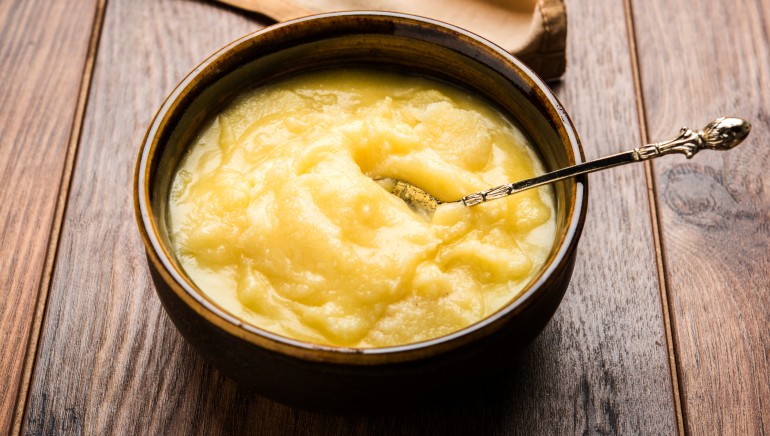
Our meal is incomplete without a spoonful of ghee over paratha or in katori of dal. More importantly, ghee, the golden elixir, is a healthy source of fat and butyric acid, which means it’s super healthy. While nothing can replace ghee, butter is sometimes seen as a replacement for ghee. And that’s why butter and ghee are often used interchangeably. But is there any difference between ghee and butter? Is ghee better than butter?
In order to understand the difference between ghee and butter, HealthShots spoke to Dietician Roopshree Jaiswal, Consultant Dietician, and Nutritionist, Motherhood Hospitals, Indore.

Ghee and butter are often used as alternatives in Indian households, but the question remains, which one is the healthier option? Many people include ghee in their diet as it is considered to be healthier fat than butter. So what exactly is ghee?
Also, read: Ghee is good, but cow ghee is even better for health, says an Ayurveda expert
Ghee is just a form of clarified butter made by boiling butter to separate the liquid and milk solid portions from the fat. It has not only been a significant part of Indian cooking for centuries but has also been used for medicinal purposes in the Ayurveda (Indian medicinal system), which might be the reason why people perceive it to be the better option.
“If we compare butter and ghee, ghee does contain a higher concentration of fat and calories than butter. It is also rich in other essential nutrients like vitamin A, omega-3 fatty acids, and conjugated linoleic acid which may help reduce gut inflammation and support heart health,” said Jaiswal.
Also, read: If not ghee, don’t look beyond these 7 healthy cooking oils
Since the difference in the nutritional value between the two is minor, it is not a strong enough reason to choose one over another.
Jaiswal said, “But what can make people choose ghee over butter is the fact that it does not contain any milk sugar, lactose, and milk protein casein. This makes it the ideal choice for lactose intolerant or casein-sensitive people.”

Furthermore, people choose ghee instead of butter because of its high smoke point. The smoke point is the temperature at which fats begin to produce smoke. While ghee is preferred for high-temperature cooking, butter is the better option for baking because of its sweeter taste.
Select Topics of your interest and let us customize your feed.
PERSONALISE NOWBoth ghee and butter have advantages and disadvantages. Since both the products are derived from the same source and are extremely alike in their nutritional value, it all comes down to your lifestyle and needs. It is not recommended to consume either of the products in excess, but both can be enjoyed in moderation, said Jaiswal.